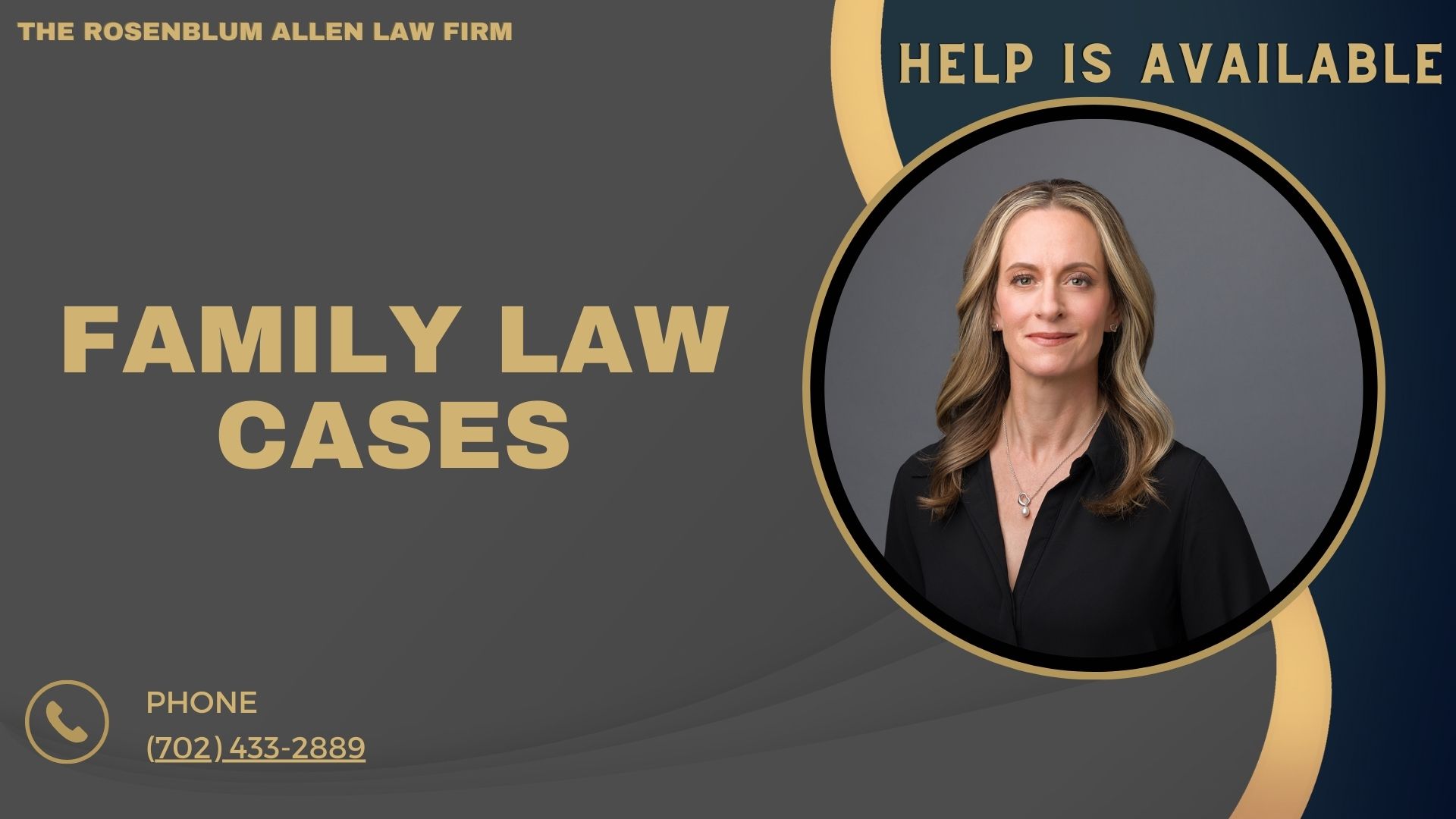Family court trials can be overwhelming, but understanding the process can help ease your anxiety. This guide will walk you through the critical aspects of a family court trial, from preparation to proceedings.
Understanding Family Court Trials
Family court trials are legal proceedings that address disputes related to family matters. They aim to resolve conflicts and make decisions in the best interests of all parties, especially children.
Definition and Purpose
A family court trial is a formal legal process in which a judge hears evidence and arguments from both parties in a family-related dispute to reach a fair and legally binding decision on divorce, child custody, or property division. Unlike criminal trials, family court trials don’t involve juries. Instead, a judge makes the final decision based on the evidence presented and the applicable laws.
Types of Cases Handled
Family courts deal with a wide range of issues. Here are some common types of cases:
- Divorce proceedings
- Child custody and visitation disputes
- Child support determinations
- Spousal support (alimony) cases
- Property division in divorce
- Adoption proceedings
- Domestic violence cases
- Paternity disputes
- Guardianship matters
Each case type has its own unique challenges and legal considerations. Understanding the specific nature of your case is crucial for proper preparation.
Pre-Trial Preparation
Preparation is critical to a successful outcome in a family court trial. This phase involves gathering evidence, developing a legal strategy, and participating in pre-trial conferences.

Gathering Evidence
Evidence is the backbone of your case. You’ll use it to support your arguments and convince the judge to rule in your favor.
Documents and Records
Collect all relevant documents that support your case. These may include:
- Financial records (bank statements, tax returns, pay stubs)
- Property documents (deeds, mortgage statements)
- Communication records (emails, text messages)
- Medical records (if relevant to the case)
- School records (for child-related cases)
Organize these documents carefully. Consider creating a chronological timeline of events supported by your evidence.
Witness Statements
Identify individuals who can provide testimony to support your case. These might include:
- Family members
- Friends
- Neighbors
- Coworkers
- Teachers or childcare providers
Prepare a list of potential witnesses and work with your attorney to determine who will most benefit your case.
Developing a Legal Strategy
A well-thought-out legal strategy is crucial for navigating a family court trial successfully.
Identifying Key Issues
Work with your attorney to pinpoint the central issues of your case. These might include:
- Determining the best custody arrangement for your children
- Calculating fair child support or alimony payments
- Deciding how to divide marital property equitably
Understanding these key issues will help you focus your efforts and present a coherent case to the judge.
Assessing Strengths and Weaknesses
Take an honest look at the strengths and weaknesses of your case. This assessment will help you:
- Prepare for potential challenges
- Highlight your strongest arguments
- Identify areas where you might need to gather more evidence
Remember, addressing potential weaknesses proactively is better than being caught off guard during the trial.
Pre-Trial Conferences and Negotiations
Many family court cases involve pre-trial conferences and negotiations. These can be opportunities to resolve issues without going to trial. During these meetings:
- Be open to compromise where possible
- Listen carefully to the other party’s concerns
- Work with your attorney to propose fair solutions
Even if you don’t resolve all issues, these discussions can help narrow down the points of contention for the trial.
Trial Procedures
Now that you’re prepared, let’s dive into what happens during a family court trial. Understanding these procedures can help calm your nerves and ensure you’re ready for each step.
Opening Statements
The trial begins with opening statements from both parties’ attorneys. This is their chance to give the judge a preview of the case. Here’s what you can expect:
- Your attorney will outline your position and what they intend to prove
- The other party’s attorney will do the same
- These statements are brief, usually lasting 10-15 minutes each
- No evidence is presented at this stage – it’s just an overview
Remember, first impressions matter. Your attorney will aim to make a compelling case right from the start.

Presentation of Evidence
This is the meat of the trial, where both sides present their evidence to support their arguments.
Direct Examination
Direct examination is when your attorney questions your witnesses. Here’s how it typically goes:
- Your attorney asks open-ended questions
- Witnesses provide testimony to support your case
- This is your chance to tell your side of the story
Pro tip: Practice with your attorney beforehand. It can help calm your nerves and ensure you present your best self.
Cross-Examination
After direct examination, the other party’s attorney gets to question the witness. This can be challenging, but stay calm and remember:
- Answer only the question asked
- If you don’t understand, ask for clarification
- Take your time to think before answering
- Be honest – lying under oath is a serious offense
Your attorney will have prepared you for likely questions, so trust in your preparation.
Rebuttal
After both sides have presented their evidence, a rebuttal may be possible. This is an opportunity to:
- Address any new issues raised during the other party’s presentation
- Clarify any misunderstandings
- Reinforce critical points of your case
Closing Arguments
Closing arguments are the final chance for attorneys to summarize their case. They’ll:
- Recap the evidence presented
- Please explain how the evidence supports their position
- Request specific outcomes from the judge
While reacting to what’s said can be tempting, maintain a calm and respectful demeanor throughout.
Role of Participants
A family court trial involves several key players. Understanding their roles can help you navigate the process more effectively.
Judge’s Responsibilities
The judge is the central figure in a family court trial. Their responsibilities include:
- Maintaining order in the courtroom
- Ensuring fair proceedings
- Ruling on objections and admissibility of evidence
- Making the final decision based on evidence and law
Remember, the judge is there to make impartial decisions, not to take sides.
Attorneys’ Duties
Your attorney is your advocate and guide through this process. Their duties include:
- Presenting your case effectively
- Objecting to improper questions or evidence
- Advising you on legal matters
- Negotiating on your behalf
Trust your attorney’s expertise, but feel free to ask questions if you need clarification.
When testifying:
- Speak clearly and truthfully
- Address the judge, not the attorneys
- Stick to the facts you know
Guardian ad Litem (if applicable)
In cases involving children, a guardian ad litem may be appointed. This person:
- Represents the best interests of the child
- Conducts investigations and interviews
- Provides recommendations to the court
Their input can significantly influence custody and visitation decisions, so be prepared to cooperate fully with them.
Common Issues in Family Court Trials
Family court trials often revolve around a few key issues. Let’s explore these in detail to help you understand what to expect.
Child Custody and Visitation
This is often the most emotionally charged issue in family court. The court’s primary concern is always the best interest of the child. Key factors the court considers:
- Each parent’s ability to provide for the child’s needs
- The child’s relationship with each parent
- Each parent’s willingness to support the child’s relationship with the other parent
- The child’s preference (if they’re old enough)
- Any history of abuse or neglect
Remember, there’s no one-size-fits-all solution. The court will look at your unique situation to determine the best arrangement.
Child Support
Child support ensures that both parents contribute financially to their child’s upbringing. The court uses a formula to calculate child support, considering:
- Each parent’s income
- The amount of time each parent spends with the child
- The child’s needs (education, healthcare, etc.)
Spousal Support/Alimony
Spousal support isn’t automatic in every divorce. The court considers various factors, including:
- Length of the marriage
- Each spouse’s earning capacity
- Standard of living during the marriage
- Age and health of each spouse
Spousal support can be:
- Temporary (during the divorce process)
- Short-term (to help a spouse become self-supporting)
- Long-term (in cases of long marriages or disability)

Property Division
Dividing marital property can be complex. The goal is usually an equitable (fair) division, which only sometimes means 50/50.Steps in property division:
- Identify all assets and debts
- Determine what’s marital property and what’s separate
- Value the marital property
- Decide on a fair division
Pro tip: Be honest about your assets. Hiding property can seriously damage your case if discovered.
Post-Trial Proceedings
The trial may be over, but there’s still more to the process. Here’s what you need to know about what happens after the judge decides.
Court’s Decision
After hearing all the evidence, the judge will make a decision. This might happen:
- Immediately after closing arguments
- A few days or weeks later
The decision will be formalized in a court order, which outlines:
- The judge’s rulings on each issue
- Any actions required by either party
- Deadlines for compliance
Read this order carefully. It’s now legally binding, and you’re required to follow it.
Appeals Process
If you believe the judge made a legal error, you may have the option to appeal. Here’s what you should know:
- Appeals must be filed quickly, usually within 30 days
- You can’t introduce new evidence on appeal
- Appeals are based on legal errors, not just disagreement with the decision
- The appeals process can be lengthy and expensive
Discuss the pros and cons of appealing with your attorney before deciding.
Enforcement of Orders
Once the court order is in place, both parties must comply. If your ex-spouse isn’t following the order:
- Document the violations
- Try to resolve the issue directly if possible
- If that fails, file a motion for enforcement with the court
The court has various tools to enforce orders, including:
- Fines
- Wage garnishment
- Modification of custody arrangements
- In extreme cases, jail time
Remember, you must also follow the order. Two wrongs don’t make a right in the eyes of the court.
Tips for Success
Navigating a family court trial can be challenging, but these tips can help you put your best foot forward and increase your chances of a favorable outcome.
Proper Courtroom Etiquette
First impressions matter, especially in court. Here’s how to make a good one:
- Dress conservatively, as if for a job interview
- Arrive early to avoid rushing or being late
- Please turn off your phone or leave it outside
- Stand when the judge enters or leaves the courtroom
- Address the judge as “Your Honor.”
- Speak clearly and respectfully to everyone
Remember, your behavior in court can influence the judge’s perception of you. Stay calm and composed, even if things get emotional.

Effective Communication Strategies
Clear communication is critical in court. Try these strategies:
- Listen carefully before responding
- Speak slowly and clearly
- Use “I” statements to express your feelings
- Stick to the facts and avoid exaggeration
- If you don’t understand something, ask for clarification
Practice these skills with your attorney beforehand. It can make a big difference in how you present yourself.
Managing Emotions During Trial
Family court can be an emotional rollercoaster. Here are some ways to stay grounded:
- Take deep breaths when you feel overwhelmed
- Bring a supportive friend or family member to court (but check if they’re allowed in the courtroom)
- Focus on the long-term goals, not short-term frustrations
- Take breaks when possible to regroup
- Consider seeing a therapist to help process your emotions
Remember, feeling emotional is okay, but try to express them appropriately in court.
Legal Considerations
Understanding some key legal concepts can help you navigate your trial more effectively.
Burden of Proof
In family court, the burden of proof is typically “preponderance of the evidence.” This means:
- The party making a claim must show it’s more likely true than not
- It’s often described as a 51% certainty
- This is lower than the “beyond reasonable doubt” standard in criminal cases
Your attorney will work to meet this burden for your claims and challenge the other party’s evidence.
Rules of Evidence
Evidence rules determine what information can be presented in court. Key points include:
- Hearsay (second-hand information) is generally not allowed
- Evidence must be relevant to the case
- Some communications (like those with your attorney) are privileged
- Documents must be authenticated to be admissible
Your attorney will handle most of this, but understanding the basics can help you gather compelling evidence.
Jurisdictional Issues
Jurisdiction determines which court has the authority to hear your case. It can get complicated, especially if:
- You and your ex-spouse live in different states
- You’ve recently moved
- There are international elements to your case

Above all, keep perspective. This trial is a challenging chapter in your life, but it’s not the whole story. With perseverance and the proper support, you can navigate this process and move forward to a new beginning. Remember, you’re not alone in this journey. Lean on your support system, seek professional help, and stay hopeful. Better days are ahead; this trial is just one step towards them.

Frequently Asked Questions
How long does a family court trial typically last?
The duration of a family court trial can vary significantly depending on the case’s complexity. Some trials may be completed daily, while others can stretch over several days or weeks. Factors influencing the length include the number of issues to be resolved, the amount of evidence to be presented, and the court’s schedule.
Can I represent myself in a family court trial?
While it’s possible to represent yourself (known as appearing “pro se”), it’s generally not recommended due to the complex nature of family law. If you choose to do so, familiarize yourself thoroughly with court procedures and local laws. Many courts offer resources for self-represented litigants.
What should I wear to a family court trial?
Dress conservatively and professionally, as if you were attending a job interview. Avoid overly casual clothing, flashy jewelry, or anything considered disrespectful to the court. Your appearance can influence the judge’s perception of you.
Can my children testify in a family court trial?
Children may be allowed to testify in some cases, but courts are generally reluctant to put children in this position. More commonly, the judge might speak with the child in chambers or appoint a guardian ad litem to represent the child’s interests.
What happens if I disagree with the judge's decision?
If you believe the judge made a legal error, you can appeal the decision to a higher court. However, appeals are based on legal errors rather than disagreement with the outcome. Consult with your attorney about the viability and potential costs of an appeal.
Can I bring support persons to the trial?
You can usually bring family members or friends for moral support, but they may not be allowed in the courtroom during proceedings. Check with your attorney or the court clerk about specific rules regarding observers.
What if my ex-spouse doesn't follow the court's orders after the trial?
If the other party doesn’t comply with court orders, you can file a motion for enforcement or contempt. In extreme cases, the court has various means to enforce its orders, including fines, wage garnishment, or even jail time.
How do I prepare my witnesses for the trial?
Work with your attorney to prepare your witnesses. They should be familiar with the questions they’ll be asked, understand the importance of honesty, and be prepared for cross-examination. Remind them to speak, address the judge as “Your Honor,” and stick to the facts they know.
Can social media posts be used as evidence in a family court trial?
Yes, social media posts can be used as evidence if they’re relevant to the case. Be cautious about what you post online during legal proceedings, as it could be used against you in court.
What if I need an interpreter for the trial?
If you need an interpreter, inform the court as soon as possible. Many courts provide interpreters for parties who need to be fluent in English, but it’s essential to request this service in advance.
Further Reading
Molly Rosenblum, Esq., our distinguished lead attorney, is not only committed to providing top-notch legal representation but has also developed a suite of valuable resources to assist you in various aspects of family law. These resources, available on the Rosenblum Law website, are meticulously curated to offer guidance and information, ensuring you are well-equipped to navigate the complexities of family law in your time of need:
Las Vegas Family Law Attorneys: A comprehensive guide offering insights and legal expertise specific to family law in Las Vegas, ensuring your legal needs are met with the highest standard of care. Explore the guide.
Family Court Las Vegas: Navigate the intricacies of the family court in Las Vegas with this detailed resource, designed to simplify and demystify the legal process. Learn more about the family court.
Common Law Marriage in Nevada: Understand the legal standing and implications of common law marriage in Nevada, an important aspect for couples living together. Read about common law marriage.
Name Change Las Vegas: Find out the legal process and requirements for officially changing your name in Las Vegas, whether due to marriage, divorce, or personal choice. Start your name change process.
Nevada Power of Attorney: Learn how to designate a power of attorney in Nevada, a critical step in managing your affairs during unforeseen circumstances. Understand the power of attorney.
How to File a Motion in Family Court: A step-by-step guide to preparing and filing a motion in family court, ensuring your legal motions are well-structured and effectively presented. Learn to file a motion.
Family Court Mediation: Discover the benefits and process of mediation in family court, an alternative to traditional litigation that promotes amicable resolutions. Explore mediation options.
Unbundled Attorney: Understand how unbundled legal services can provide you with tailored legal support that meets your specific needs, often at a lower cost. Learn about unbundled services.
Nevada Adoption: Navigate the adoption process in Nevada with this resource, providing you with the necessary information and steps to expand your family. Read about Nevada adoption.
Molly Rosenblum, Esq. aims to empower you with these resources, ensuring you have access to the knowledge and tools essential for navigating the intricate landscape of family law. We encourage you to leverage these resources as you embark on or navigate through your legal journey.

Offsite Resources You May Find Helpful
Here are some resources that can provide more information and support for those preparing to take a family law case to trial:
American Bar Association (ABA) – Family Law Section: The ABA’s Family Law Section provides resources on divorce, child custody, and other related topics.
National Family Law Trial Institute: An intensive, hands-on trial skills training program designed to improve advocacy skills in the family law courtroom.
FindLaw – Family Law: FindLaw provides free legal information, a lawyer directory, and other resources related to family law.
Avvo: Avvo offers a Q&A forum where users can ask legal questions and get answers from lawyers, as well as a directory of lawyers by specialty.
Justia – Family Law: Justia offers free case law, codes, regulations and legal information for lawyers, business, students and consumers worldwide.
Our Family Wizard: This co-parenting tool can help reduce conflict and improve communication, which can be essential for managing custody arrangements and preparing for a family law case trial.

What's Next?
Are you looking for a Las Vegas child custody attorney in Las Vegas?
Look no further than The Rosenblum Allen Law Firm.
We have years of experience, and we specialize in child custody law.
Our team will listen to your story and fight tirelessly to ensure the best possible outcome for you and your family.
At The Rosenblum Allen Law Firm, our goal is to get results so everyone involved can go on with their lives as best they can–no matter what happens!
So if you’re searching for an experienced Child Custody Attorney in Las Vegas who puts your needs first, call (702) 433-2889 today!
Let’s discuss how we can help get everything back on track ASAP!
The Reason You Haven't Hired A Child Custody Attorney Yet
We’re ready to fight for the rights of your family if you hire us. We’re waiting to jump into action on the behalf of your family.






